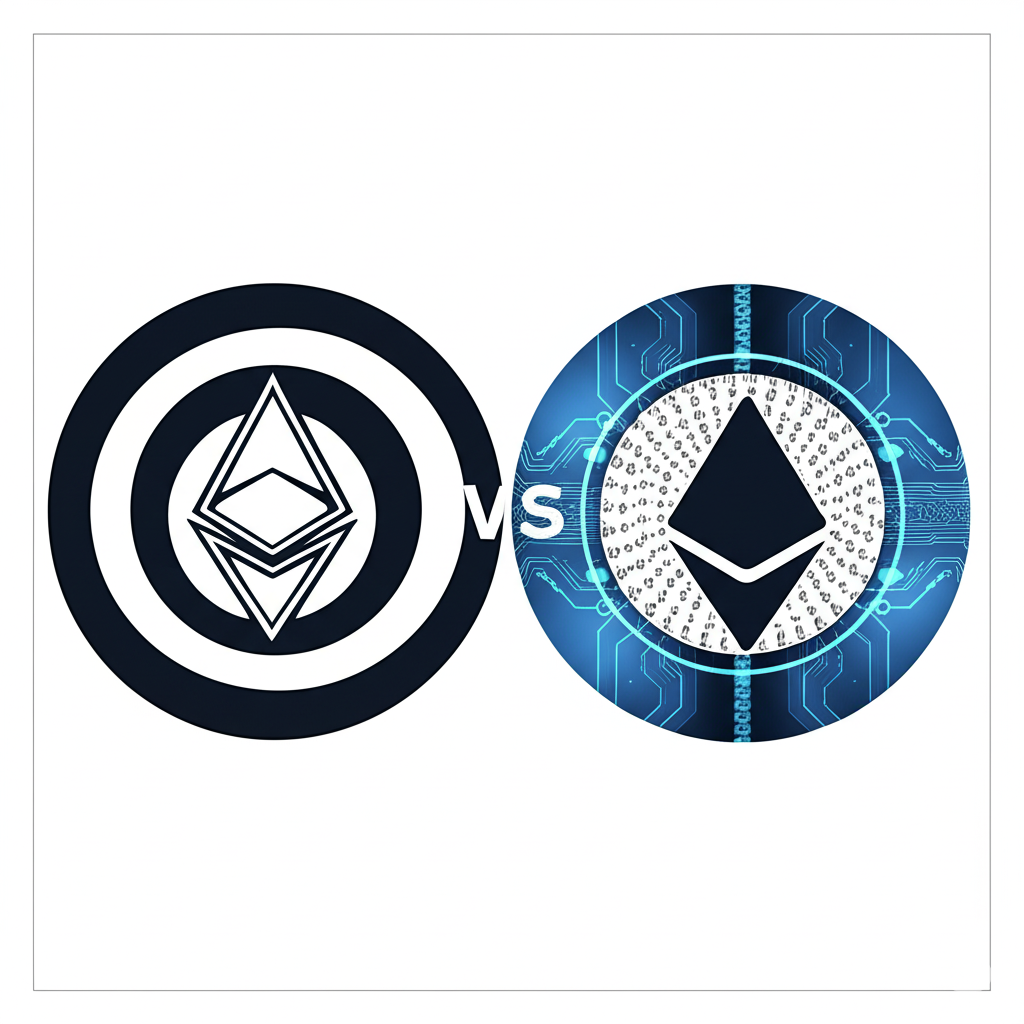Ethereum (ETH) vs InQubeta (QUBE): Which Blockchain Is More Scalable?
Estimated Reading Time: 5 minutes
- Understanding scalability is key to evaluating blockchain networks.
- Ethereum’s scalability solutions include Layer 2 enhancements and upcoming updates.
- InQubeta targets AI investors with innovative crowdfunding methods.
- Diverse investment strategies can yield benefits in an evolving crypto landscape.
Table of Contents
- Understanding Scalability
- Ethereum (ETH): Scalability Insights
- InQubeta (QUBE): A New Contender
- Comparing Scalability: Ethereum vs InQubeta
- Practical Takeaways for Crypto Enthusiasts
- Conclusion
- FAQ
Understanding Scalability
Before diving into the specifics of Ethereum and InQubeta, let’s clarify what we mean by scalability. Scalability is a blockchain’s ability to handle more transactions as user demand increases without sacrificing speed or affordability. Important indicators of scalability include:
- Transactions Per Second (TPS): This measures how many transactions a blockchain can process in one second.
- Transaction Fees: Higher scalability often correlates with lower fees, which makes the network more user-friendly.
- Network Congestion and Latency: A scalable blockchain can minimize delays and congestion during peak times.
Ethereum (ETH): Scalability Insights
Current State of Ethereum
Ethereum, launched back in 2015, stands as the second-largest cryptocurrency platform after Bitcoin. It uses the Proof-of-Stake (PoS) consensus mechanism since the major upgrade known as The Merge in September 2022. This transition improved energy efficiency but did not directly enhance scalability.
- Base Layer Limitations:
- Pre-migration, Ethereum could only process around 15 to 30 transactions per second (TPS). As demand surged, users faced network congestion and escalating gas fees that made transactions expensive.
- Upgrades and Future Solutions:
- Rollups: These Layer 2 solutions, such as Optimism, Arbitrum, and zkSync, are capable of bundling numerous transactions off-chain and then settling them on-chain. This scaling method can escalate TPS into the thousands.
- Danksharding: This upcoming feature aims to split data processing across multiple shards, paving the way for even more extensive scalability enhancements.
- Effective Throughput:
- With rollups in play, Ethereum can reach upwards of several thousand TPS, especially during peak periods, which still remain mixed in terms of transaction costs.
- Diverse Ecosystem:
- Ethereum’s vibrant and massive developer community fosters rapid adoption of new technologies aimed at improving scalability, ensuring the blockchain remains relevant and efficient.
InQubeta (QUBE): A New Contender
Project Focus
InQubeta is a fresh player in the crypto realm, making waves in 2024–2025. Its niche focus is on creating specialized infrastructure for AI startup crowdfunding through fractional NFTs (Non-Fungible Tokens). This innovative approach opens up new avenues for investment in the burgeoning AI sector.
- Scalability through Innovation:
- InQubeta’s architecture is designed to optimize the user experience. Although specific TPS values are still emerging, the project aims to leverage existing technologies while building its ecosystem focused on AI investments.
- ERC20 Token Standard:
- As an ERC20 token, QUBE inherits some of the strengths of Ethereum. However, it seeks to innovate on those facets to push further into the realm of speed and cost efficiency.
- Crowdfunding through NFTs:
- The concept of fractional NFTs aims at democratizing access to AI investments, allowing smaller investors to participate without needing hefty capital, thus potentially increasing network activity.
Comparing Scalability: Ethereum vs InQubeta
The scalability journey of Ethereum and InQubeta highlights two distinct narratives.
- Historical Legacy vs. Fresh Innovation: Ethereum comes with years of historical development, proven scalability measures via Layer 2 solutions, and significant industry support. However, it still faces congestion and variable fees during high-demand periods.
- Niche Targeting vs. Broad Applicability: InQubeta, being a newer blockchain, is tailored to a specific audience—AI investors—which allows for focused scaling strategies. Though yet untested in extreme conditions, its innovative methods position it well for future growth.
Practical Takeaways for Crypto Enthusiasts
- Stay Updated on Upgrades: As Ethereum continues to evolve, understanding its upgrades and how they impact its scalability is vital. Follow Ethereum updates to make informed decisions about your investments.
- Explore Innovative Projects: Keep an eye on emerging projects like InQubeta, especially those revolutionizing niche markets. They can offer fresh opportunities in a saturated market.
- Diversify Your Portfolio: Don’t put all your eggs in one basket. Exposure to both established coins like Ethereum and innovative new entrants like InQubeta can provide opportunities for gains while balancing risks.
- Mind the Fees: Always factor transaction fees into your trading strategies—these can significantly affect profits, especially during peak times.
Conclusion
Ethereum and InQubeta each offer unique advantages, and understanding their scalability is essential for making informed investment choices. Ethereum has a robust system in place, but it also faces challenges with congestion and fees. Meanwhile, InQubeta’s innovative strategy of coupling AI investments with blockchain technology presents a new frontier in the crypto landscape.
As the crypto space evolves, adaptability and knowledge will be your best tools for success. If you’re keen to broaden your understanding of Bitcoin and cryptocurrencies, consider downloading our comprehensive Bitcoin eBook. It’s packed with insights that will enhance your crypto journey.
Lastly, we would love to hear your thoughts! What are your predictions for Ethereum and InQubeta? Drop your questions in the comments section below, and let’s ignite a conversation about the future of blockchain scalability.
FAQ
Q: What is blockchain scalability?
A: Scalability refers to a blockchain’s ability to handle increased demand and transactions without compromising performance.
Q: How does Ethereum plan to improve its scalability?
A: Ethereum aims to improve scalability through Layer 2 solutions like rollups and future upgrades like danksharding.
Q: What makes InQubeta unique?
A: InQubeta focuses on AI investment crowdfunding through fractional NFTs, targeting a specific market segment with innovative technology.


